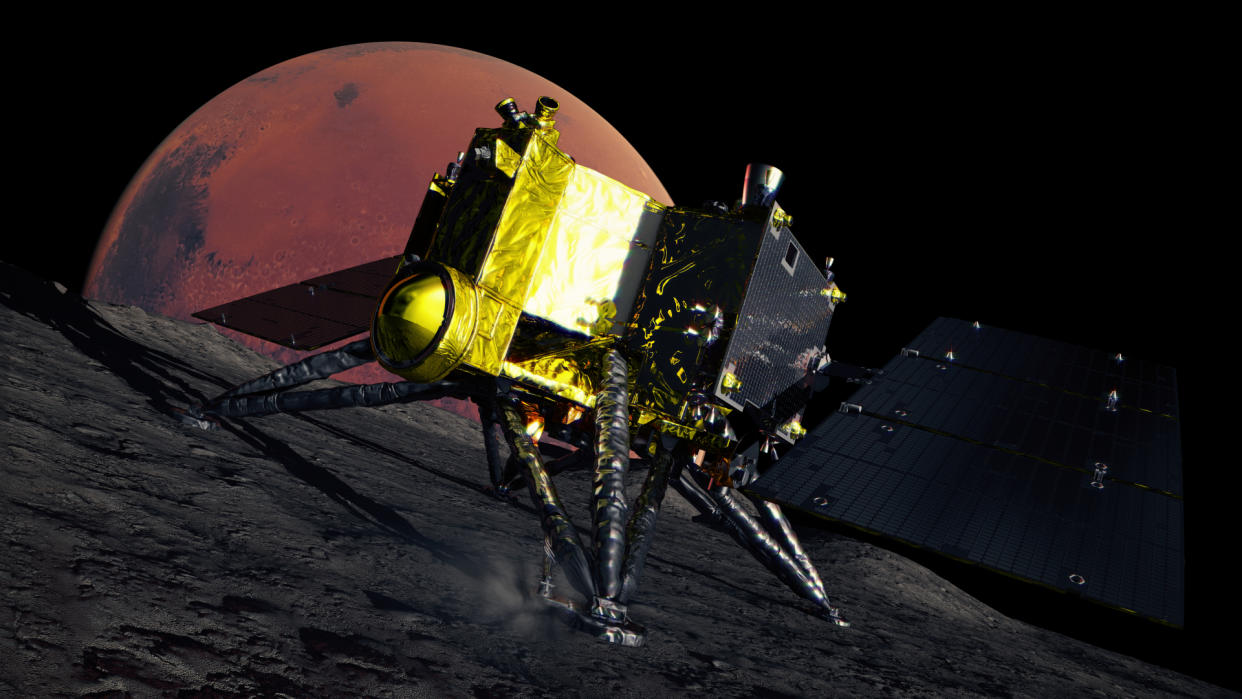Japan delays MMX Mars moon sample-return mission to 2026

Japan has postponed the launch of a mission seeking to bring samples of a Martian moon to Earth until 2026.
The Japan Aerospace Exploration Agency (JAXA)'s Martian Moons eXploration (MMX) mission was due to launch in September of this year on the country's new H3 rocket.
However, the first flight of the flagship H3 failed last March. Despite JAXA recently announcing it is now targeting mid-February for a second H3 launch attempt, the agency decided that proving the reliability of the new launcher was paramount before attempting the ambitious interplanetary MMX mission.
Related: New Japanese spacecraft aims to explore the mysterious moons of Mars
A September 2024 launch would have seen MMX reach the Red Planet in August 2025 and return to Earth with around 0.35 oz (10 grams) of samples of the Mars moon Phobos in 2029.
But the mission now must wait until the next Mars launch window opens in late 2026; its samples are slated to reach Earth in 2031. (Earth and Mars align properly for interplanetary missions just once every 26 months.)
RELATED STORIES:
— China's Mars orbiter snaps striking shot of Red Planet's larger moon, Phobos
— Mars: Everything you need to know about the Red Planet
— Mars moon mystery: Strange structures found inside 'fearful' Phobos
A key goal of MMX is to determine if Phobos and its fellow moon Deimos are captured asteroids or the coalescence of fragments blown into orbit after a giant impact struck Mars. It also promises to bring new understandings regarding the history of the Red Planet and insights into planetary formation in the wider solar system.
The MMX mission will include flybys of Deimos, which is smaller and more distantly orbiting than Phobos. The spacecraft will also carry a small rover for exploring Phobos, developed by the German Aerospace Center (DLR) and the French Center National Space Research (CNES).

